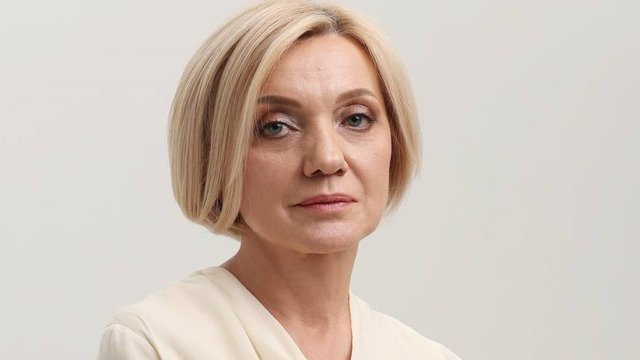No soldier has yet said he defends 'right to speak Russian' - Language Ombudsman

Olena Ivanovska, Commissioner for the Protection of the State Language, believes that the issue of the Ukrainian language in the army should not be forced and turned into a political confrontation.
"Yes, this is indeed a sensitive issue. But, you know, it seems to me that it is not as complicated as they often try to present it. We ourselves complicate it - with emotions, loud headlines, unproductive contrasts. And in fact, the answer is much simpler if we look at reality with respect and gratitude. Not a single soldier who is defending the country today has said that he is defending the 'right to speak Russian.' They are fighting for Ukraine, for freedom, for the lives of their brothers, for the future of their children. It's just that many of them come from a Russian-speaking environment, and this is a reality that cannot be crossed out," Ivanovska said in an exclusive interview with the Interfax-Ukraine agency, answering the question of whether it is worth addressing the issue of part of the military using the Russian language in the army before the end of the war.
At the same time, she emphasized that, in accordance with language legislation, commanders and management are obliged to use the state language in official communication, and also drew attention to the fact that in many units this has already become the norm - not as a formality, but as part of the army culture.
"I am convinced that anyone who has gone through the war, who has seen the face of the enemy and the losses among their own people, understands perfectly well that the Russian language is not "neutral". But this understanding must mature naturally, from within. We cannot and do not have the right to impose this at a time when these people are giving the most for the country. Therefore, my position is not to force it. Not to do it through political confrontation. Instead, to create conditions so that the transition to Ukrainian is easy and relaxed," the commissioner added.
Ivanovska stated that after the victory, the conversation on this topic will be continued, but no longer with pressure, but with gratitude and trust.
When asked whether she was considering the possibility of introducing the position of a "military representative" in the Secretariat of the Language Ombudsman, the Commissioner noted that this is an interesting and potentially productive idea.
"Especially in the context of the future, when we will move from war to the restoration and reintegration of society. The military have enormous authority, they are moral leaders, and therefore - carriers of influence, including linguistic. Their voice is important in this conversation. But at the same time, we must be honest: today there is no clear mechanism for how such a position can function directly in the army or at the front. But if such an initiative - in some form - becomes real, supported at the state level, the Ministry of Defense, and finds support in the military community itself - we are certainly ready to cooperate," she added.








